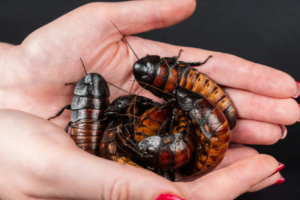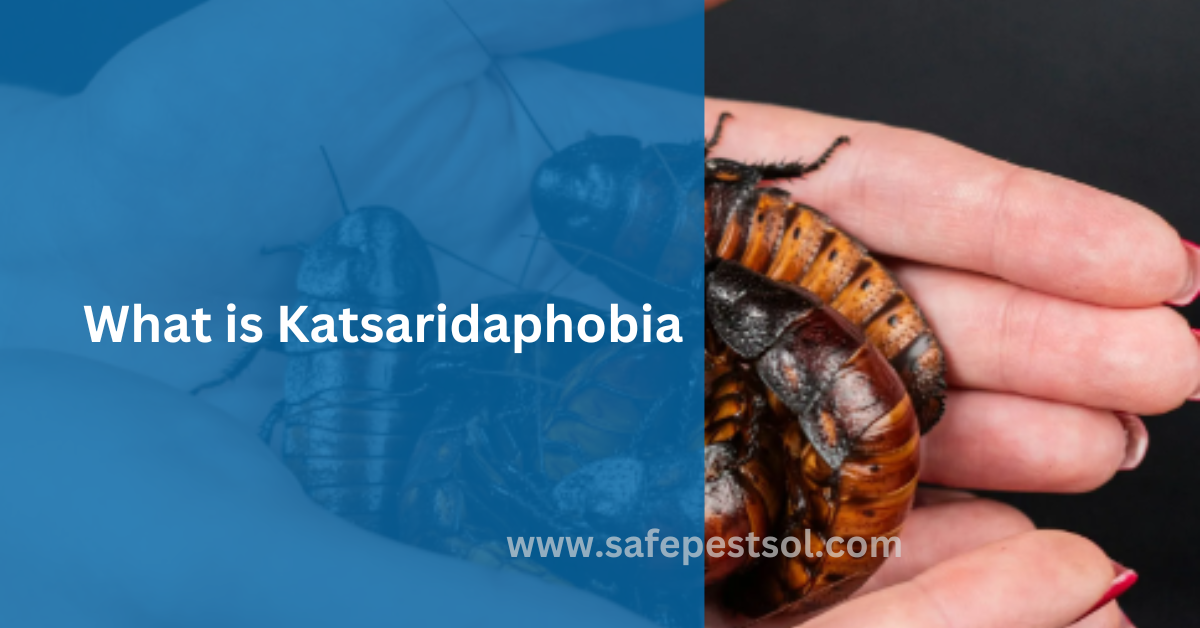What is Katsaridaphobia
Have you ever felt apprehensive or frightened just upon catching a glimpse of the cockroach? Well, you are not alone in that. Many people are left with a giddy feeling of fear when they spot the tiny creature.
Such intense fear is labeled katsaridaphobia or the irrational fear of a cockroach. Even though they do nothing of real harm, most of the people with this kind of phobia react rather dramatically to the mere existence of a roach.

More than feeling a little uncomfortable, katsaridaphobia may significantly affect someone’s day-to-day activities and mental health.
What does Katsaridaphobia mean?
The term “Katsaridaphobia” is derived from two words: “katsarida,” being Greek for cockroach, and “phobia,” which means fear. It essentially portrays an extreme fear of cockroaches. Unlike any simple aversion, it can lead to severe anxiety and panic attacks that interfere much with a person’s life. Some persons may even become hypervigilant whenever they see just a single roach.
While some individuals might feel a little nausea or disgust at the appearance of cockroaches, for those with katsaridaphobia, their reactions are more serious, and they may be able to experience increased heart rate, sweating, and feeling paralyzed by the mere appearance of a cockroach.
Is Katsaridaphobia a Disease?
Many people have doubts that having katsaridaphobia is some type of disease or not. While it is not classified as a proper disease, it lies in the list of phobias. Or you can say that it is a type of anxiety disorder. In simple words, it can be said that katsaridaphobia can combine with any other phobia and can become the result of anxiety, but it is not any medical condition solely.
Most of the specific phobias are not that easy to handle, and they can cause fear related to anything; it can be any situation or even fear of seeing any type of creature as well, like roaches.
In the case of katsaridaphobia, the people suffering from such fear often feel shame or exclusion because their responses are considered unacceptable. This self-comparison aggravates feelings of low self-esteem or anxiety. One should acknowledge that these are not weakness-related matters but rather authentic mental concerns, which, with the correct intervention, could be made controllable.
Main Causes of Katsaridaphobia
1.Traumatic Experiences
The primary cause for katsaridaphobia is past encounters with a cockroach. Negative experiences, such as a cockroach crawling on someone when they are sleeping, its appearance in food, or being startled by one, can create long-lasting fears. These experiences can bring about the full-blown phobia with time, which changes people’s perception of these creatures.
2.Learned Behavior
At times, katsaridaphobia is a learned habit due to the reaction of others. For example, a child may see how his mother or brother reacts strongly over a roach. Therefore, the child starts avoiding cockroaches and eventually becomes an adult with this kind of fear.
3.Cultural Influence
In some societies, cockroaches are considered dirty or even a symbol of bad luck. Such a strong perception may cause great fear toward them, and therefore, one can develop an emotional bond with the notion that pests are bad or undesirable. The said cultural context is the main reason why fears can be spread among people or families.
4.Biological Factors
Few people are more sensitive to few things like height, darkness, or even cockroaches. For them, just seeing the roaches is enough to create a lot of anxiety or an extreme motionless reaction out of pure fear.
What are the Symptoms of Katsaridaphobia?
Extreme Anxiety
The mere thought of having a cockroach in an individual’s mind suffering from katsaridaphobia will make them feel very anxious. When they feel or think that a cockroach is in the same room, it becomes a more intense state of anxiety and makes the individual avoid the place where roaches may occur.
Panic Attacks
Panic attacks are one of the common attacks that cause symptoms like a fastened heart rate, inability to breathe, sweating, tremors, and loss of control.
Avoidance Behavior
People with katsaridaphobia tend to avoid certain places, such as basements, kitchens, storage units, or any place reported to have cockroaches. This avoidance behavior becomes an extension of avoiding living in homes, friends’ homes, or even outdoor places if there is any chance of finding a roach existence.
Sweating and Nausea
Severe cases of katsaridaphobia manifest through physical reactions such as excessive sweating, nausea, and dizziness. Some people may experience these manifestations without warning and get progressively worse with continued exposure.
Is There Any Cure for Katsaridaphobia?
Several modern therapies, treatments, and techniques could help the patient fight through the fear of cockroaches. Here are the treatments:
1.Cognitive Behavioral Therapy (CBT)
Cognitive Behavioral Therapy is the most common and effective treatment. In CBT, a therapist works with the person to find out what the irrational belief or thought is about cockroaches. The long-term effect of CBT is supposed to be replacing these beliefs with more rational ones, in this case, giving an individual mastery over their fear.
2.Exposure Therapy
This method involves the exposure of roaches in front of the person who is dealing with Katsaridaphobia. This includes watching videos, or visiting rooms known to have cockroaches in order to help gradually desensitize an individual to their fear. In most cases, this helps in reducing extreme reactions as well as allowing the regaining of control by an individual.
3.Professional Help
This requires professional help from a licensed therapist if the phobia affects daily life in a significant manner. A therapist will offer a combination of therapies along with self-care strategies. Professional help might also encompass discussions regarding medications to regulate the anxiety related to katsaridaphobia.
Conclusion
Katsaridaphobia is a deep-seated fear of cockroaches that affects life at various levels. However, there are effective modern therapies and self-helping techniques that one may avail to help them confront this aversion. If diagnosed,
katsaridaphobia is treated appropriately, possibly with CBT or exposure therapy, and through learned relaxation techniques, significant quality of life improves. Perhaps if you have cockroach phobia, or indeed if someone close to you does, take this moment to seek professional guidance.
FAQs
Can katsaridaphobia go away on its own?
In some cases, the phobia may lessen over time if the individual faces positive experiences or changes in life circumstances. However, most people benefit from modern calming therapies or professional help to effectively address the fear.
How common is katsaridaphobia?
Katsaridaphobia is relatively common, affecting many individuals to varying degrees. Cockroach fears are particularly prevalent among those who have had negative experiences or grew up in places where cockroaches are common.
Is katsaridaphobia hereditary?
While not directly inherited, a person’s tendency to develop a phobia can be influenced by family reactions and upbringing. If friends or family members show extreme reactions to roaches, a child may learn the same fear response.
Call Professionals to Make Your Home Roach-Free!
We know that seeing roaches can be awful for many of us. But don’t worry, we can make them run away from your home with our expert pest control services. So, call us today and let’s talk!

